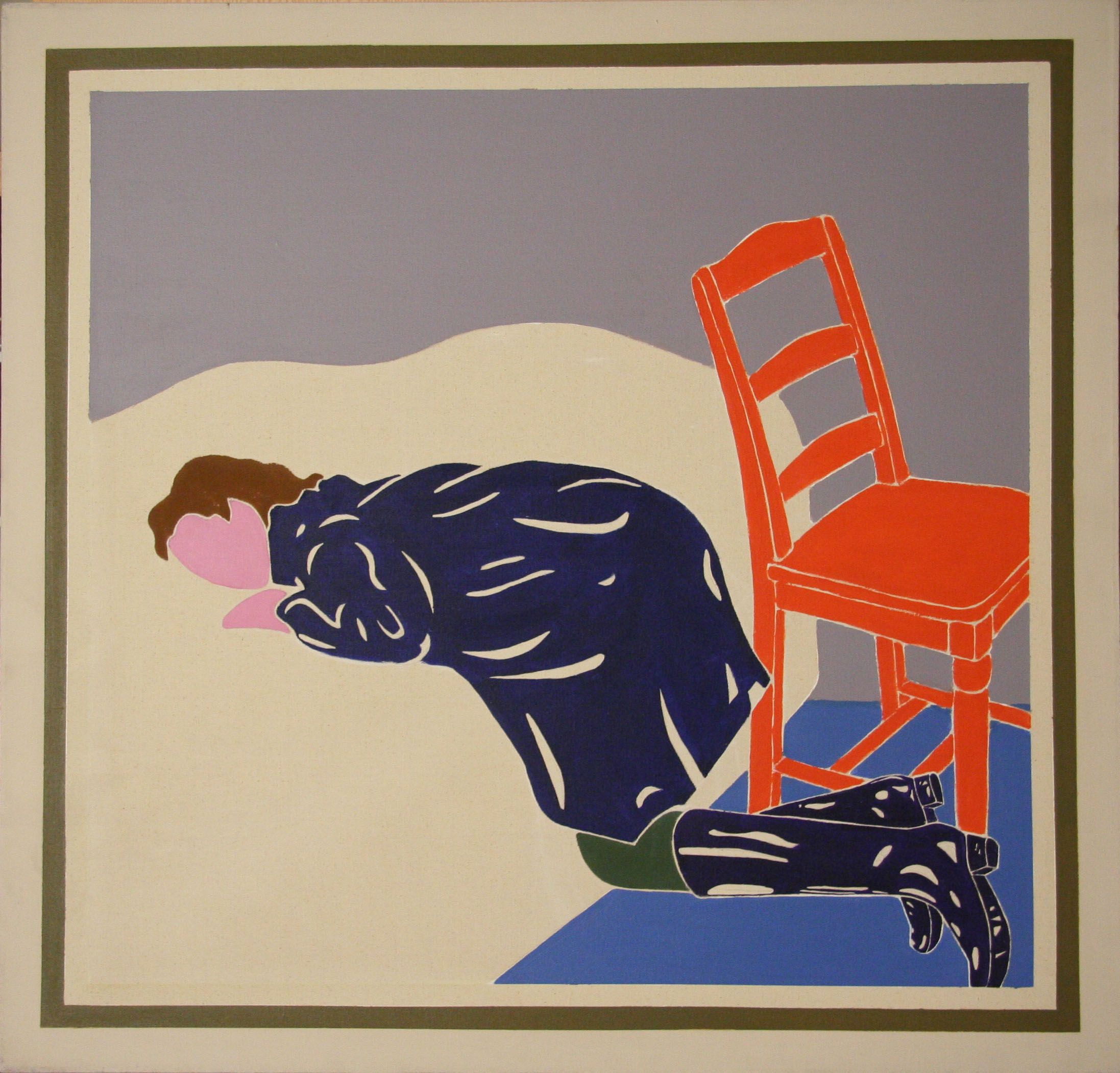March 5–May 1, 2022
What does it mean to make forgettable work when the art world trades in memory? Pics or it didn’t happen, the reification of the document: even in the dematerialized, social-media-sodden scene, art still functions as a memorial—even, we might venture, a monument to capital. Forgetting is abolitionist.
The title of Jesse Darling’s survey at Modern Art Oxford, “No Medals No Ribbons,” signals a refusal to this sort of public recognition. Like the vitrines of slowly wilting flowers in the gallery café (and entrance to the exhibition), it calls up the trappings of remembrance while imploring us to forget. Inside the show, objects engage in childlike cosplay, slough off inhibitions to reveal new forms. A litter picker, crutch, and plastic bottle come together to form a gun; a Hitachi vibrator becomes the torch on the Statue of Liberty. Objects seem unbothered by the fact they are in a museum: they trip over each other, try and trip you up, stretching and lurching their wiry limbs in ungainly configurations.
Two unsteady vitrines—part of the series “Epistemologies” (2018–22)—comprise an art-historical joke at the expense of the institution. Containing only concrete blocks or a pile of lifeless birds, these works make a blunt mockery of the Western museological tradition and the ways in which it displays and produces knowledge. But Darling’s ambivalence extends to the mythologization of their own practice. Tucked away in the central room, behind a crowd of other tall sculptures, stands Honour Role (2016). This single classroom chair is identical to those in the group that make up March of the Valedictorians (2016), a work shown at the 2019 Venice Biennale. Isolated from its cohort and stuck in the naughty corner, Honour Role exhibits a kind of embarrassment with the artist-as-brand that is created by this cultural and financial ecosystem.
The fraught question of Darling’s participation in what they call the “art industrial complex” animates “No Medals No Ribbons.” The sculpture Gravity Road (2020), described by the artist as a “dysfunctional rollercoaster,” performs an apparent perversion of leisure: its deformed steel track, held together with bandages and sandbags, seems to issue from an apocalyptic future-present while also signalling the origins of the amusement ride in the mining shaft and railroad. In its broken body, Gravity Road remembers the rollercoaster’s twisted history. Its perverse kinks are not an expression of artistic license but a historical and material rendering of modernity’s death drive: the exhilaration of colonists carving up land resurfacing in death-defying “fun.”
An art gallery is not so different from an amusement park. A work of art becomes a commodity because it can produce knowledge: a certain kind of eloquent leisure. It has its own extractive logic, drawing on physical resources and the artist’s biography to produce aesthetic, political, or historical value which (ideally) translates into a solid investment. “No Medals No Ribbons” disturbs this neat conversion, transforming works that might otherwise appear clearly packageable into objects the viewer encounters in an embodied way, beyond these abstractions.
Gravity Road, for example, was originally made for the Third-Reich-era former swimming pool that houses the Kunstverein Freiberg, where it appeared in an austere installation that almost served to reify its gleaming curves. At Modern Art Oxford, however, it is more ungainly in the way it fills the space: any further claim to monumentality is undercut by the tens of aluminium airplanes strewn across the floor. Neither a coherent installation nor a tidy collection of sculptures, the crowded hang unsettles any expectations of tasteful restraint. Just as the rollercoaster is denatured and deformed—made almost unrecognisable so we can recognise a truth that lies behind its outward appearance—so is the familiar formula of the retrospective, where works neatly queue up around the length of an artist’s biography.
“No Medals No Ribbons” is anti-hagiographic: like Gravity Road and Honour Role, objects from Darling’s practice are recontextualized through different installation or other adaptations. Many of these are also leitmotifs of art history: consider the votive cabinets and tin-foil saints in the final two rooms, Catholic classics alongside a forcibly feminized Batman. The compulsion to repeat across history, whether personal or (inter)national, finally yields different results, even if these are just the hallucinations of a paranoid society. Compulsions and hallucinations are also a symptom of devotion, but what are we madly in love with now that God is out of the picture? With art? With destruction? With each other? “No Medals No Ribbons” suggests all of the above.
















